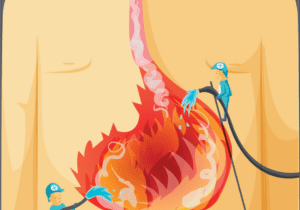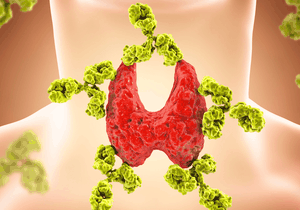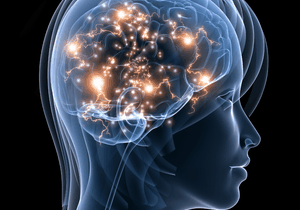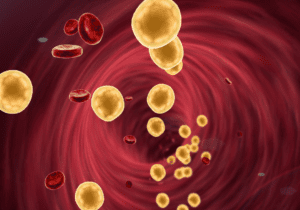Taming Your Thyroid… Symptoms?
Lately, I’ve noticed that we have been getting a lot more calls from people who are sick and tired of feeling sick and tired. They have classic thyroid symptoms that may include the inability to lose weight, constipation, hair loss, depression, and morning headaches, but when they have their thyroid checked everything looks fine. So they go on feeling sick without realizing that there is a solution.
The thyroid is a butterfly-shaped gland that sits in your throat. Its hormones are responsible for regulating your metabolism through the production and secretion of T4 and T3. T4, the less form, has less impact on your metabolism and is the bulk of thyroid hormone secretions. T3, on the other hand, is the most active form, has the greatest effect on your metabolic function, and is the least of the thyroid hormone secretions. Our bodies, being the magnificent engines they are, convert T4 to T3, mostly in the liver, as we need it.
Synthesis and secretion of thyroid hormones depend on many factors including the availability of hormone building blocks. The process starts in your brain, where the pituitary, under the direction of the hypothalamus, is the general of your hormonal system. It sends messages to all the glands and tells them when to secrete hormones into circulation. Thyroid Stimulating Hormone, better known as TSH, is how the pituitary talks to the thyroid. If TSH levels are high, the pituitary is screaming at the thyroid to secrete hormone, and if TSH is low, the pituitary is shut down by too much circulating hormone. Another important component of thyroid health and one that is often overlooked is the balance between estrogen and testosterone which can be influenced by hormone replacement therapy or birth control. If either of those is high or low, it will impact the proper attachment and detachment of thyroid binding proteins. The result can be thyroid symptoms with normal TSH. Yet another major influence on thyroid health is adrenal function. In today’s stressed-out world, elevated cortisol, made by the adrenal cortex, will slow down thyroid function and can be a leading cause of hypothyroid symptoms. Liver and gut health also influence thyroid hormone balance because of their role in converting T4 into T3. That’s not all, let me tell you a story…
Amanda, a mother of two active boys is always tired. She notices that her symptoms escalate after giving birth to her second child plus she can’t lose the weight she gained. As soon as the weather turns cold she feels even worse. No matter how many layers of clothing she wears, she is always freezing, her hands and feet are constantly icy and no amount of lotion relieves her dry skin. Finally, at her wit's end, she makes an appointment with her doctor who puts her on thyroid hormones. Amanda immediately starts to feel better, but a few months later her symptoms return, except now she also feels depressed. This time her lab work is normal, but Amanda feels anything but normal. What Amanda doesn’t know is that the thyroid is affected by any change and shift in the body and her pregnancy triggered an autoimmune condition better known as Hashimoto’s thyroiditis. Properly managed, Amanda’s symptoms resolved.
So, if you don’t feel well, it is possible to feel better with the right support. Pursuing a regimen of natural therapies and an appropriate diet along with traditional medical care will help restore your health and well-being.















